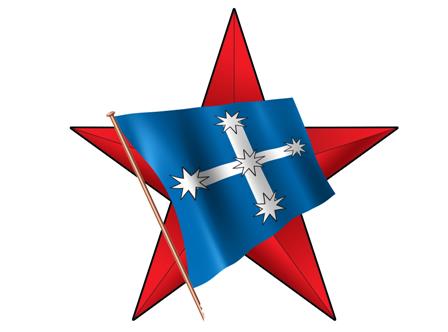 Australian Marxist economist Bruce Macfarlane (born 1936) passed away on Sunday December 11 in Christchurch, NZ, aged 86.
Australian Marxist economist Bruce Macfarlane (born 1936) passed away on Sunday December 11 in Christchurch, NZ, aged 86. VANGUARD - Expressing the viewpoint of the Communist Party of Australia (Marxist-Leninist)
For National Independence and Socialism • www.cpaml.org
 Australian Marxist economist Bruce Macfarlane (born 1936) passed away on Sunday December 11 in Christchurch, NZ, aged 86.
Australian Marxist economist Bruce Macfarlane (born 1936) passed away on Sunday December 11 in Christchurch, NZ, aged 86.
Bruce was an outstanding example of an academic who used Marxist political economy to critique contemporary capitalist society.
In his youth he was given his first Marxist text, Socialism: Utopian and Scientific by his father, a member of the Communist Party of Australia.
Bruce opposed the US War of Aggression Against Vietnam and had his first arrest at a demonstration in Canberra against the visit by pro-Hitler dictator of South Vietnam Air Vice-Marshall Ky in January 1967. Protests against US imperialism saw Bruce arrested on several other occasions. He was an early supporter in Australia of the South Vietnamese National Liberation Front, arguing its case in the University of NSW student paper Tharunka in August 1965. He became organising secretary of the Vietnam Moratorium Committee in the ACT.
Bruce graduated from the University of Sydney, and worked at Cambridge University with Joan Robinson and Maurice Dobb. He held a number of posts at various Australian universities.
Despite his grounding in Marxist theory, MacFarlane turned his energies to advocacy of reform, rather than of revolution. In 1968, he published Economic Policy in Australia, The Case for Reform, directed against control of the economy by US corporations. It used Marxist economic theories, but not Marxist or Leninist political and ideological teachings. Yet he targeted the main enemy of the working class and its allies, arming them with knowledge of its crimes here and overseas. His extraordinarily prolific writings on contemporary imperialism were always concise, useful and insightful.
In 1970, he co-authored The Chinese Road to Socialism with colleague Ted Wheelwright, a sympathetic account of the developing struggle against the capitalist roaders at the start of the Great Proletarian Socialist Revolution.
Bruce contributed to a number of progressive journals including that of the Society for the Study of Labour History, the Journal of Contemporary Asia, and the Journal of Australian Political Economy.
We have said that Bruce did not embrace our understanding of Marxism-Leninism. But neither was he disdainful of the work done by Communist activists. He did not stand in their way, was never sectarian in his dealings with others and continued to explain and oppose capitalism, giving ammunition to the revolutionary movement until his final days. As a socialist, he supported Australian anti-imperialist independence and sovereignty.
There are intellectuals who have a pretend commitment to the cause of the working class, and intellectuals who remain attached to it throughout their lifetime. Bruce belonged to the latter category.
Bruce MacFarlane hated capitalism and opposed US imperialism all his life. In doing so he always served the working class and its allies.